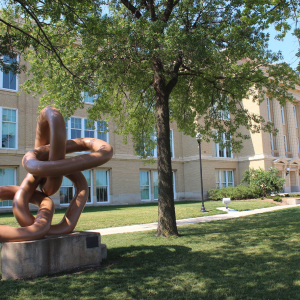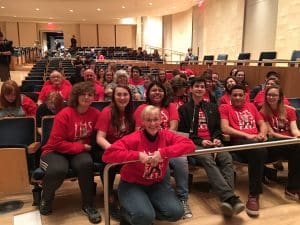Visit the Music Department website!
Philosophy
Lincoln Public Schools believes that music is an integral part of our society and as a discipline must be a component of the core curriculum for all students in grades K-8 and a viable elective for all students in grades 9-12. Students in all grades must have opportunities to continuously develop their musical skills and knowledge to their fullest potential. The study of music addresses the diverse needs, talents, interests, learning styles, and cultural backgrounds of students. Furthermore, the process of music education fosters cooperative behavior, critical thinking, and problem-solving skills that will be needed for successful living. Music education in the Lincoln Public Schools is essential to provide all students with a means for promoting life-long appreciation and creative expression of music.
Major Objectives
Lincoln Public Schools will offer a comprehensive preK-12 music curriculum. This curriculum will provide experiences through continuous and systematic instruction in areas of music congruent with the music section outlined in the National Standards for Arts Education. To this end, Lincoln Public Schools will provide developmentally appropriate curricular opportunities for students to:
- perform music alone and with others;
- improvise and compose music;
- use music vocabulary and music notation;
- respond to music aesthetically, intellectually, and emotionally;
- think critically and creatively;
- develop insights into a wide variety of music of diverse musical styles, representing past and present world cultures;
- understand the uses and influences of music in the lives of human beings;
- develop a greater understanding of their own feelings and the feelings of others;
- understand the uses and influences of technology in music;
- make aesthetic judgments based on critical listening and analysis;
- use self-discipline and leadership skills in problem-solving situations;
- develop and integrate a multi-sensory approach (aural, visual, kinesthetic, and tactile skills) to enhance learning;
- develop a commitment to music;
- develop a positive self-image;
- support the life of the community and encourage others to do so;
- continue a lifetime of musical learning and enjoyment; and
- continue to emphasize the academic benefits of the systematic study of music.






